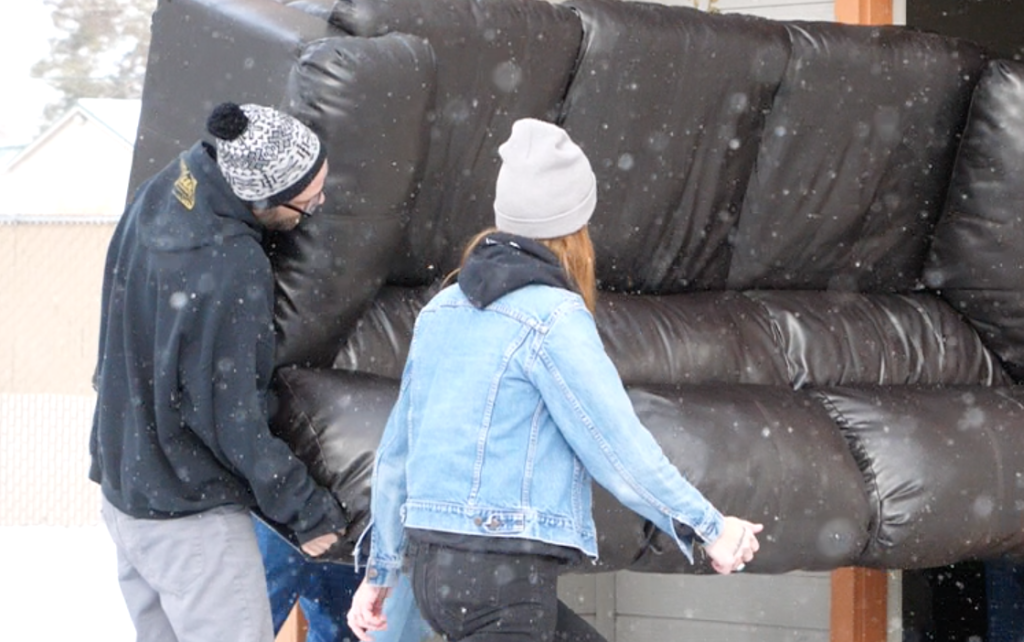
Word on the Street Issue 19, February 2022
Brad Stephens, 46, lost his job in hotel construction in the spring of 2020, a few months after the onset of the COVID-19 pandemic. Stephens’ work had taken him across the western United States to and from jobs for years. Now, safety restrictions meant he could no longer travel. Two months later, he found himself in eviction court.
Stephens had never experienced homelessness or housing instability of any sort. He worked diligently to locate rental assistance to keep the two-bedroom house he rented for himself and his daughter in Caldwell. Jesse Tree, a Boise-based nonprofit focused on eviction prevention, offered to cover his back rent. The funding also meant Stephens could guarantee his landlord payment for the next four months.
But in June, he stood in front of a Canyon County judge. The woman who owned the house wouldn’t accept assistance. Nearly a year later, the Biden administration would mandate that agencies distributing federal aid cut checks directly to tenants if landlords refused. People like Stephens fell through the cracks.
“The landlord turned (Jesse Tree) down and said no, we don’t want any part of it. If he can’t pay me right now – everything – then we sever ties,” Stephens said. “The judge thought it was ridiculous and said there’s no way we’re going to give him an eviction, so I don’t have one on my record. But, she won.”
All of this was despite the eviction moratorium included in the CARES Act, which according to the Congressional Research Service only applied to between 28% and 46% of occupied rental units nationally. At the time of Stephens’ eviction, Idaho courts had reopened for eviction hearings approximately one month prior.
An order from the Idaho Supreme Court allowed those hearings to begin so long as landlords submitted a form attesting that the property was not subject to the CARES Act requirements. Idaho never implemented its own eviction moratorium.
Stephens worked with Jesse Tree to find housing to no avail. The funding assistance became obsolete, he said. Fortunately, his daughter could stay with her mother. Stephens, however, found himself at Interfaith Sanctuary, where he remained for almost a year.
Even with no eviction on his record, convictions from over two decades ago meant landlords routinely rejected his rental applications. “I stole a snake 22 years ago,” Stephens said. “I was probably 21 or 22 years old. We were intoxicated leaving a bar, walked into Zamzows, and decided to pet some animals. The snake started to crawl up my sleeve and I said well, OK, I’m going to take him home. So I got a felony.”
“I have never had that (conviction) affect me in my life,” Stephens said. “I tell people and they laugh – it’s a good ice breaker. But when you go to fill out a rental application, there’s nowhere for you to explain. They just see a felony and they don’t care.”
Becoming homeless also caused Stephens, who was sober for a decade, to start drinking again. At Interfaith Sanctuary, he found a community in the recovery program. He said he’s been in treatment before but it was impersonal. “In this place, everyone cares. I’m grateful that I landed here instead of down the road,” he said. “I just feel safer around people here – like-minded people.”
Things have since turned around for Stephens. He found full-time employment in Boise. After months of searching and numerous applications submitted (all of which required fees), he found a new apartment in late December.
But Stephens never got all of his belongings back. The judge ordered his former landlord to give him time to retrieve items, but when his sister showed up at the house, the landlord never answered the door. Just after Christmas, Interfaith helped him move furniture from a donor into his new home.
The move has been a blessing – he can now see his daughter regularly. But leaving the shelter also made Stephens realize how important community is and he plans to stay involved.
“When you’re in shelter, you’re not consciously acknowledging that you’re dependent upon these people, but when they’re gone, you are,” he said. “Moving out has been a little overwhelming, but it’s not necessary to look at it like that. You just take it a day at a time.”
